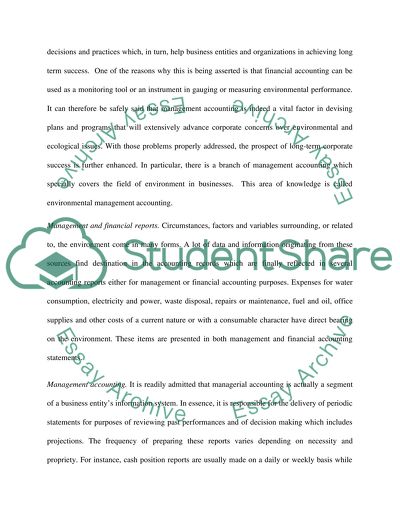Cite this document
(Management and Financial Accounting in the Development of Environmenta Essay, n.d.)
Management and Financial Accounting in the Development of Environmenta Essay. Retrieved from https://studentshare.org/finance-accounting/1563285-critically-evaluate-this-statement-management-accounting-and-financial-accounting-both-play-a-role-in-the-development-of-a-robust-environmental-policy-that-will-contribute-to-longer-term-organizational-success
Management and Financial Accounting in the Development of Environmenta Essay. Retrieved from https://studentshare.org/finance-accounting/1563285-critically-evaluate-this-statement-management-accounting-and-financial-accounting-both-play-a-role-in-the-development-of-a-robust-environmental-policy-that-will-contribute-to-longer-term-organizational-success
(Management and Financial Accounting in the Development of Environmenta Essay)
Management and Financial Accounting in the Development of Environmenta Essay. https://studentshare.org/finance-accounting/1563285-critically-evaluate-this-statement-management-accounting-and-financial-accounting-both-play-a-role-in-the-development-of-a-robust-environmental-policy-that-will-contribute-to-longer-term-organizational-success.
Management and Financial Accounting in the Development of Environmenta Essay. https://studentshare.org/finance-accounting/1563285-critically-evaluate-this-statement-management-accounting-and-financial-accounting-both-play-a-role-in-the-development-of-a-robust-environmental-policy-that-will-contribute-to-longer-term-organizational-success.
“Management and Financial Accounting in the Development of Environmenta Essay”. https://studentshare.org/finance-accounting/1563285-critically-evaluate-this-statement-management-accounting-and-financial-accounting-both-play-a-role-in-the-development-of-a-robust-environmental-policy-that-will-contribute-to-longer-term-organizational-success.


